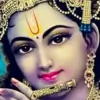The Yaksha Prashna:
The Yaksha then said, 'What is it that maketh the Sun rise? Who keeps him company? Who causeth him to set? And in whom is he established?'
Yudhishthira answered, 'Brahma maketh the Sun rise: the gods keep him company: Dharma causeth him to set: and he is established in truth.' 2
The Yaksha asked, 'By what doth one become learned? By what doth he attain what is very great? How can one have a second? And, O king, how can one acquire intelligence?'
Yudhishthira answered, 'It is by the (study of the) Srutis that a person becometh learned; it is by ascetic austerities that one acquireth what is very great: it is by intelligence that a person acquireth a second and it is by serving the old that one becometh wise.' 1
The Yaksha asked, 'What constituteth the divinity of the Brahmanas? What even is their practice that is like that of the pious? What also is the human attribute of the Brahmanas? And what practice of theirs is like that of the impious?'
Yudhishthira answered, 'The study of the Vedas constitutes their divinity: their asceticism constitutes behaviour that is like that of the pious; their liability to death is their human attribute and slander is their impiety.'
The Yaksha asked, 'What institutes the divinity of the Kshatriyas? What even is their practice that is like that of the pious? What is their human attribute? And what practice of theirs is like that of the impious?'
Yudhishthira answered, 'Arrows and weapons are their divinity: celebration of sacrifices is that act which is like that of the pious: liability to fear is their human attribute; and refusal of protection is that act of theirs which is like that of the impious.'
The Yaksha asked, 'What is that which constitutes the Sama of the sacrifice? What the Yajus of the sacrifice? What is that which is the refuge of a sacrifice? And what is that which sacrifice cannot do without?'
Yudhishthira answered, 'Life is the Sama of the sacrifice; the mind is the Yajus of the sacrifice: the Rik is that which is the refuge of the sacrifice; and it is Rik alone which sacrifice cannot do without.' 2 The Yaksha asked, 'What is the foremost value to those that cultivate? What is of the foremost value to those that sow? What is of the foremost value to those that wish for prosperity in this world? And what is of the foremost value to those that bring forth?'
Yudhishthira answered, 'That which is of the foremost value to those that cultivate is rain: that of the foremost value to those that sow is seed: that of the foremost value to those that bring forth is offspring. 1'
The Yaksha asked, 'What person, enjoying all the objects of the senses, endued with intelligence, regarded by the world and liked by all beings, though breathing, is not yet alive?'
Yudhishthira answered, 'The one who doth not offer anything to these five, viz., gods, guests, servants, Pitris, and himself, though endued with breath, is not yet alive.'
The Yaksha asked, 'What is weightier than the earth itself? What is higher than the heavens?' What is fleeter than the wind? And what is more numerous than grass?'
Yudhishthira answered, 'The mother is weightier than the earth; the father is higher than the heaven; the mind is fleeter than the wind; and our thoughts are more numerous than grass.'
The Yaksha asked, 'What is that which doth not close its eyes while asleep; What is that which doth not move after birth? What is that which is without heart? And what is that which swells with its own impetus?'
Yudhishthira answered, 'A fish doth not close its eyes while asleep: an egg doth not move after birth: a stone is without heart: and a river swelleth with its own impetus.'
The Yaksha asked, 'Who is the friend of the exile? Who is the friend of the householder? Who is the friend of him that ails? And who is the friend of one about to die?'
Yudhishthira answered, 'The friend of the exile in a distant land is his companion, the friend of the householder is the wife; the friend of him that ails is the physician: and the friend of him about to die is charity.
The Yaksha asked,--'Who is the guest of all creatures? What is the eternal duty? What, O foremost of kings, is Amrita? And what is this entire Universe?'
Yudhishthira answered,--Agni is the guest of all creatures: the milk of kine is amrita: Homa (therewith) is the eternal duty: and this Universe consists of air alone.' 2
The Yaksha asked,--'What is that which sojourneth alone? What is that which is re-born after its birth? What is the remedy against cold? And what is the largest field?'
Yudhishthira answered,--'The sun sojourneth alone; the moon takes birth anew: fire is the remedy against cold: and the Earth is the largest field.'
The Yaksha asked,--'What is the highest refuge of virtue? What of fame? What of heaven? And what, of happiness?'
Yudhishthira answered,--'Liberality is the highest refuge of virtue: gift, of fame: truth, of heaven: and good behaviour, of happiness.'
The Yaksha asked,--'What is the soul of man? Who is that friend bestowed on man by the gods? What is man's chief support? And what also is his chief refuge?'
Yudhishthira answered,--'The son is a man's soul: the wife is the friend bestowed on man by the gods; the clouds are his chief support; and gift is his chief refuge.'
The Yaksha asked,--'What is the best of all laudable things? What is the most valuable of all his possessions? What is the best of all gains? And what is the best of all kinds of happiness?'
Yudhishthira answered,--"The best of all laudable things is skill; the best of all possessions is knowledge: the best of all gains is health: and contentment is the best of all kinds of happiness.'
The Yaksha asked,--'What is the highest duty in the world? What is that virtue which always beareth fruit? What is that which if controlled, leadeth not to regret? And who are they with whom an alliance cannot break?'
Yudhishthira answered,--'The highest of duties is to refrain from injury: the rites ordained in the Three(Vedas) always bear fruit: the mind, if controlled, leadeth to no regret: and an alliance with the good never breaketh.'
The Yaksha asked,--'What is that which, if renounced, maketh one agreeable? What is that which, if renounced, leadeth to no regret? What is that which, if renounced, maketh one wealthy? And what is that which if renounced, maketh one happy?'
Yudhishthira answered,--'Pride, if renounced, maketh one agreeable; wrath, if renounced leadeth to no regret: desire, if renounced, maketh one wealthy: and avarice, if renounced, maketh one happy.'
The Yaksha asked,--'For what doth one give away to Brahmanas? For what to mimes and dancers? For what to servants? And for what to king?'
Yudhishthira answered,--'It is for religious merit that one giveth away to Brahmanas: it is for fame that one giveth away to mimes and dancers: it is for supporting them that one giveth away to servants: and it is for obtaining relief from fear that one giveth to kings.'
The Yaksha asked,--'With what is the world enveloped? What is that owing to which a thing cannot discover itself? For what are friends forsaken? And for what doth one fail to go to heaven?'
Yudhishthira answered,--'The world is enveloped with darkness. Darkness doth not permit a thing to show itself. It is from avarice that friends are forsaken. And it is connection with the world for which one faileth to go to heaven.'
The Yaksha asked,--'For what may one be considered as dead? For what may a kingdom be considered as dead? For what may a Sraddha be considered as dead? And for what, a sacrifice?'
Yudhishthira answered,--'For want of wealth may a man be regarded as dead. A kingdom for want of a king may be regarded as dead. A Sraddha that is performed with the aid of a priest that hath no learning may be regarded as dead. And a sacrifice in which there are no gifts to Brahmanas is dead.'
The Yaksha asked,--'What constitutes the way? What, hath been spoken of as water? What, as food? And what, as poison? Tell us also what is the proper time of a Sraddha, and then drink and take away as much as thou likest!'
Yudhishthira answered,--'They that are good constitute the way. 1 Space hath been spoken of as water. 2The cow is food. 3 A request is poison. And a Brahmana is regarded as the proper time of a Sraddha. 4 I do not know what thou mayst think of all this, O Yaksha?'
The Yaksha asked,--'What hath been said to be the sign of asceticism? And what is true restraint? What constitutes forgiveness. And what is shame?'
Yudhishthira answered,--'Staying in one's own religion is asceticism: the restraint of the mind is of all restraints the true one: forgiveness consists in enduring enmity; and shame, in withdrawing from all unworthy acts.'
The Yaksha asked,--'What, O king is said to be knowledge? What, tranquillity? What constitutes mercy? And what hath been called simplicity?'
Yudhishthira answered,--'True knowledge is that of Divinity. True tranquillity is that of the heart. Mercy consists in wishing happiness to all. And simplicity is equanimity of heart.'
The Yaksha asked,--'What enemy is invincible? What constitutes an incurable disease for man? What sort of a man is called honest and what dishonest?'
Yudhishthira answered,--'Anger is an invincible enemy. Covetousness constitutes an incurable disease. He is honest that desires the weal of all creatures, and he is dishonest who is unmerciful.'
The Yaksha asked,--'What, O king, is ignorance? And what is pride? What also is to be understood by idleness? And what hath been spoken of as grief?'
Yudhishthira answered,--'True ignorance consists in not knowing one's duties. Pride is a consciousness of one's being himself an actor or sufferer in life. Idleness consists in not discharging one's duties, and ignorance in grief.'
The Yaksha asked,--'What hath steadiness been said by the Rishis to be? And what, patience? What also is a real ablution? And what is charity?'
Yudhishthira answered,--'Steadiness consists in one's staying in one's own religion, and true patience consists in the subjugation of the senses. A true bath consists in washing the mind clean of all impurities, and charity consists in protecting all creatures.'
The Yaksha asked,--'What man should be regarded as learned, and who should be called an atheist? Who also is to be called ignorant? What is called desire and what are the sources of desire? And what is envy?'
Yudhishthira answered,--'He is to be called learned who knoweth his duties. An atheist is he who is ignorant and so also he is ignorant who is an atheist. Desire is due to objects of possession, and envy is nothing else than grief of heart.'
The Yaksha asked,--'What is pride, and what is hypocrisy? What is the grace of the gods, and what is wickedness?'
Yudhishthira answered,--'Stolid ignorance is pride. The setting up of a religious standard is hypocrisy. The grace of the gods is the fruit of our gifts, and wickedness consists in speaking ill of others.'
The Yaksha asked,--'Virtue, profit, and desire are opposed to one another. How could things thus antagonistic to one another exist together?'
Yudhishthira answered,--'When a wife and virtue agree with each other, then all the three thou hast mentioned may exist together.'
The Yaksha asked,--'O bull of the Bharata race, who is he that is condemned to everlasting hell? It behoveth thee to soon answer the question that I ask!'
Yudhishthira answered,--'He that summoneth a poor Brahmana promising to make him a gift and then tells him that he hath nothing to give, goeth to everlasting hell. He also must go to everlasting hell, who imputes falsehood to the Vedas, the scriptures, the Brahmanas, the gods, and the ceremonies in honour of the Pitris, He also goeth to everlasting hell who though in possession of wealth, never giveth away nor enjoyeth himself from avarice, saying, he hath none.'
The Yaksha asked,--'By what, O king, birth, behaviour, study, or learning doth a person become a Brahmana? Tell us with certitude!'
Yudhishthira answered,-'Listen, O Yaksha! It is neither birth, nor study, nor learning, that is the cause of Brahmanahood, without doubt, it is behaviour that constitutes it. One's behaviour should always be well-guarded, especially by a Brahmana. He who maintaineth his conduct unimpaired, is never impaired himself. Professors and pupils, in fact, all who study the scriptures, if addicted to wicked habits, are to be regarded as illiterate wretches. He only is learned who performeth his religious duties. He even that hath studied the four Vedas is to be regarded as a wicked wretch scarcely distinguishable from a Sudra (if his conduct be not correct). He only who performeth the Agnihotra and hath his senses under control, is called a Brahmana!'
The Yaksha asked,--'What doth one gain that speaketh agreeable words? What doth he gain that always acteth with judgment? What doth he gain that hath many friends? And what he, that is devoted to virtue?'--
Yudhishthira answered,--'He that speaketh agreeable words becometh agreeable to all. He that acteth with judgment obtaineth whatever he seeketh. He that hath many friends liveth happily. And he that is devoted to virtue obtaineth a happy state (in the next world).'
The Yaksha asked,--'Who is truly happy? What is most wonderful? What is the path? And what is the news? Answer these four questions of mine and let thy dead brothers revive.'
Yudhishthira answered,--'O amphibious creature, a man who cooketh in his own house, on the fifth or the sixth part of the day, with scanty vegetables, but who is not in debt and who stirreth not from home, is truly happy. Day after day countless creatures are going to the abode of Yama, yet those that remain behind believe themselves to be immortal. What can be more wonderful than this? Argument leads to no certain conclusion, the Srutis are different from one another; there is not even one Rishi whose opinion can be accepted by all; the truth about religion and duty is hid in caves: therefore, that alone is the path along which the great have trod. This world full of ignorance is like a pan. The sun is fire,he days and nights are fuel. The months and the seasons constitute the wooden ladle. Time is the cook that is cooking all creatures in that pan (with such aids); this is the news.'
The Yaksha asked,--'Thou hast, O represser of foes, truly answered all my questions! Tell us now who is truly a man, and what man truly possesseth every kind of wealth.'
Yudhishthira answered,--'The report of one's good action reacheth heaven and spreadeth over the earth. As long as that report lasteth, so long is a person to whom the agreeable and the disagreeable, weal and woe, the past and the future, are the same, is said to possess every kind of wealth.'
































